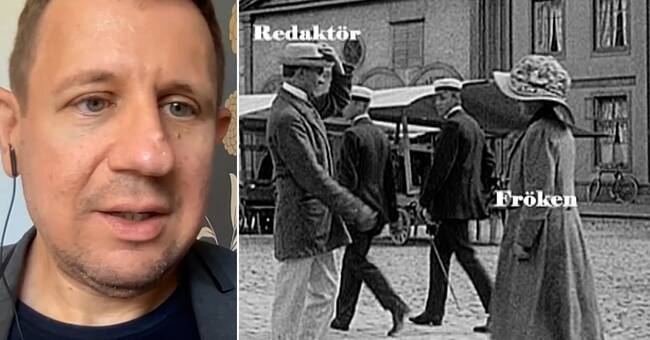3700 of Språktidningen's readers have answered questions about being addressed to you.
Almost 67 percent feel that it has become more common in recent years and over 70 percent react negatively to this.
The result is not representative of the population at large, but it is clear that many do not like to be called "you" instead of "you".
Anders Svensson, editor-in-chief of Språktidningen, says that many who experienced the so-called "you-reform" feel that it is condescending to be niad.
- It was such a clear class marker, we always nibbled down, he says.
Linked to age
So it was only people who were not considered to have nice enough titles that you could be called.
One director became "director", while one miner became "you".
Anders Svensson has for six months looked more closely at the "nothing" history.
However, obtaining hard figures on whether use has increased has proved difficult.
- It has little to do with the fact that the ninth is so strongly linked to age, so when I ask people if they feel that they have become "ninth" more often in the last five years, the person has also become older during that time, he says.
Formed you associations
But many people who are too young to have the "you-reform" (1967) in fresh memory can still be annoyed by being "ninth".
- In practice, it works as proof that I have become middle-aged, says Anders Svensson.
But the ninth has irritated the Swedes for a long time.
In 1993, Rapport made a semi-indignant feature that more and more young people have started saying you to the elderly.
And already in the 1850s, when professional titles began to feel a bit cumbersome, there was disagreement in Sweden whether to say "you" or "you".
- In Stockholm, the first "you association" was formed with the sole purpose of promoting the use of "you".
In many places, rival du-associations were formed, says Anders Svensson.

